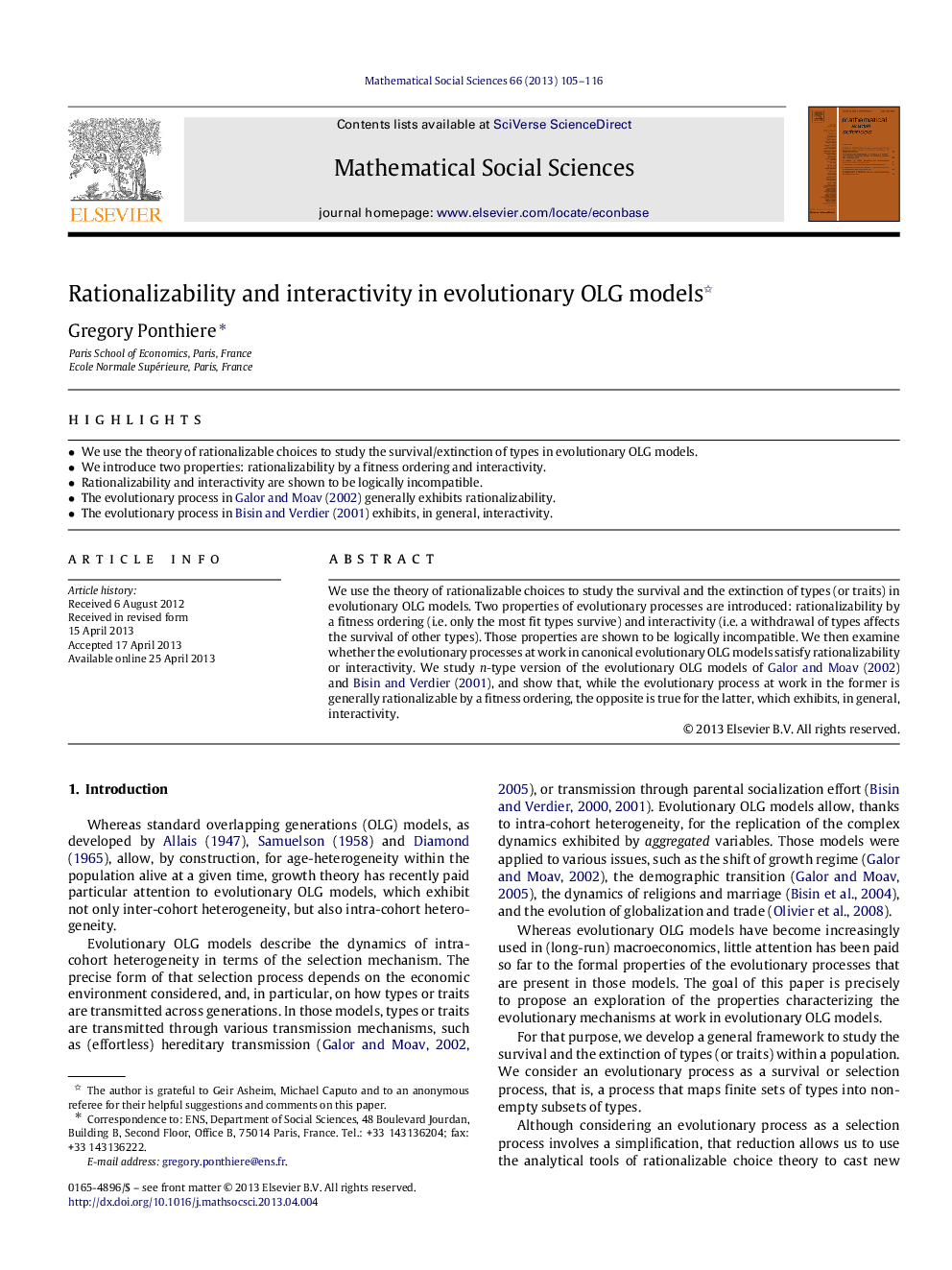| Article ID | Journal | Published Year | Pages | File Type |
|---|---|---|---|---|
| 972657 | Mathematical Social Sciences | 2013 | 12 Pages |
•We use the theory of rationalizable choices to study the survival/extinction of types in evolutionary OLG models.•We introduce two properties: rationalizability by a fitness ordering and interactivity.•Rationalizability and interactivity are shown to be logically incompatible.•The evolutionary process in Galor and Moav (2002) generally exhibits rationalizability.•The evolutionary process in Bisin and Verdier (2001) exhibits, in general, interactivity.
We use the theory of rationalizable choices to study the survival and the extinction of types (or traits) in evolutionary OLG models. Two properties of evolutionary processes are introduced: rationalizability by a fitness ordering (i.e. only the most fit types survive) and interactivity (i.e. a withdrawal of types affects the survival of other types). Those properties are shown to be logically incompatible. We then examine whether the evolutionary processes at work in canonical evolutionary OLG models satisfy rationalizability or interactivity. We study nn-type version of the evolutionary OLG models of Galor and Moav (2002) and Bisin and Verdier (2001), and show that, while the evolutionary process at work in the former is generally rationalizable by a fitness ordering, the opposite is true for the latter, which exhibits, in general, interactivity.
